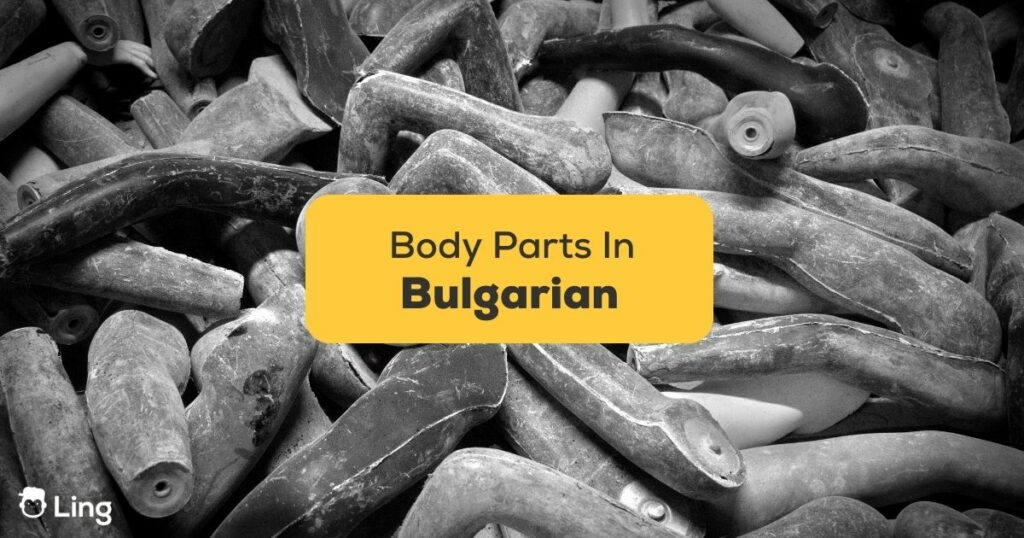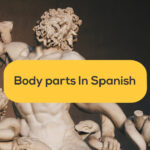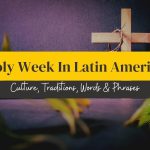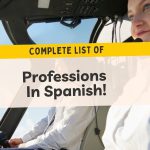Planning a trip to Bulgaria? It’s easy to think that travelers should only be concerned about their luggage and Insta pics, but hey, let’s get real for a second. When an unexpected emergency happens (and trust us, it can), knowing the terms for body parts in Bulgarian can pretty much save your life!
If you can clearly express yourself without relying on just pointing and awkward hand gestures (we’ve all been there), then the whole trip and remedy will be given right away.
Want to prepare? If yes, grab a snack, get comfy, and read on more about the Bulgarian language below!
Why Learn Bulgarian Body Parts?
Oh, you think everyone speaks English, so you’re good to go? Think again, buddy! When I was in Bulgaria, I found myself in a bit of a, shall we say, fiery situation. No, really, it felt like my esophagus was on fire!
I tried the whole pointing thing, gesturing wildly at my throat, hoping someone would get what I was trying to say. Trust me, the looks I got were more puzzled than a cat watching a laser pointer. Sure, there were many people who spoke English really well, but at that moment, not a single English speaker in sight.
I even pulled out Google Translate (thank you, modern technology!), but it just wasn’t cutting it. The translations were more mixed up than a jigsaw puzzle, and the urgency was lost in translation.
The lesson here?
Speaking Bulgarian isn’t just a ‘nice to have’; it’s a must-have! Whether it’s a burning esophagus or a simple chat with a local, knowing the language adds a whole new level to your travel experience. Plus, who wants to rely on frantic pointing when you can charm your way through Bulgaria with the local lingo?
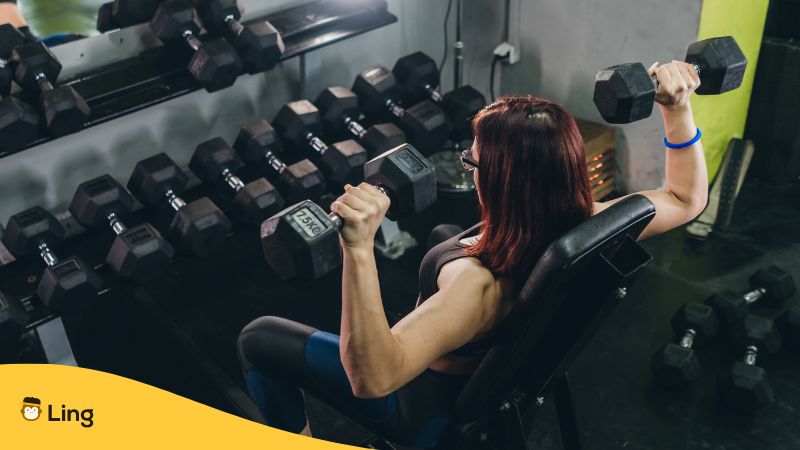
Upper Body Parts In Bulgarian
If you’ve ever wanted to know how to say ‘my arm hurts’ or ‘I have a headache’ in Bulgarian, you’re in the right place. We’re talking upper body parts in Bulgarian, baby!
| English | Bulgarian Script | Bulgarian Pronunciation |
|---|---|---|
| Head | глава | glava |
| Eye | око | oko |
| Ear | ухо | uho |
| Nose | нос | nos |
| Mouth | уста | usta |
| Neck | врат | vrat |
| Shoulder | рамо | ramo |
| Arm | ръка | raka |
| Chest | гръд | grad |
| Back | гръб | grab |
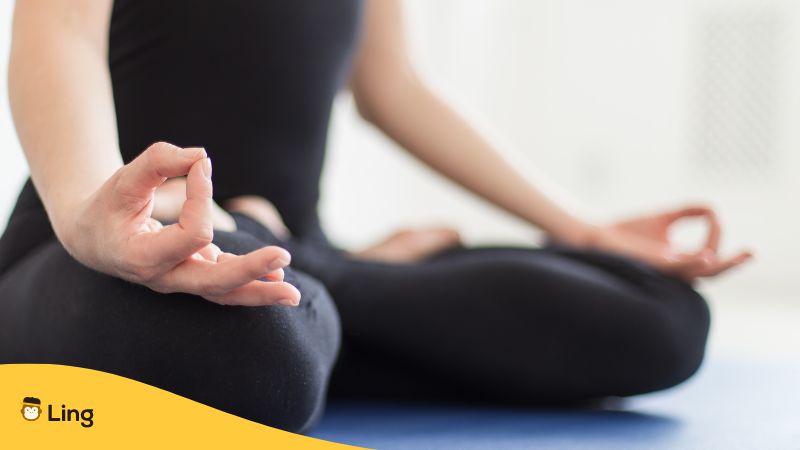
Lower Body Parts In Bulgarian
You’ve mastered the upper body, but what about everything from the waist down? Knowing how to express, ‘I twisted my ankle’ or ‘I have a cramp in my leg’ in Bulgarian can come in super handy, especially when you’re exploring the beautiful country. Don’t forget to explore muscle-soothing exercises. You’ll eventually say thank you in Bulgarian after finding those gems!
| English | Bulgarian Script | Bulgarian Pronunciation |
|---|---|---|
| Waist | кръст | krast |
| Hip | ханш | hansh |
| Leg | крак | krak |
| Knee | коляно | kolyano |
| Ankle | глезен | glezen |
| Foot | крак | krak |
| Toe | пръст на крака | prast na kraka |
What Is “Body” In Bulgarian?
In Bulgarian, the word for “body” is “тяло” (pronounced: tyalo). Simple enough, right? But what about when you’re talking about more than one body? Maybe you’re at the gym and you’re admiring the “bodies” of the fitness enthusiasts around you, or perhaps you’re talking about the bodies of water surrounding beautiful Bulgaria.
In that case, the word for “bodies” in Bulgarian is “тела” (pronounced: tela).
Here’s how you can use them:
- Body (singular): “тяло” (tyalo)
- Bodies (plural): “тела” (tela)
Easy to remember and an essential addition to your Bulgarian vocabulary, right? Whether you’re talking about the human body or bodies of work, these words will have you covered. So go ahead, flex those language muscles, and embrace the full body of the Bulgarian language. We’ll say our best wishes and good luck in Bulgarian for your journey!
Sentence Patterns For Talking About Body Parts In Bulgarian
It’s one thing to know the words, but it’s a whole other game to put them together in sentences. Think of it like a language puzzle where you fill in the blanks to create your masterpiece. Ready to flex those language muscles?
- Talking about pain or discomfort:
- English: “My ________ hurts.”
- Bulgarian: “Боли ме ________.” (Boli me ________.)
- Describing someone’s appearance:
- English: “He/She has beautiful ________.”
- Bulgarian: “Той/Тя има красиви ________.” (Toy/Tya ima krasivi ________.)
- Pointing something out:
- English: “Look at that person’s ________.”
- Bulgarian: “Погледни ________ на онзи човек.” (Pogledni ________ na onzi chovek.)
- Expressing a Need or Desire:
- English: “I need to move my ________.”
- Bulgarian: “Трябва да преместя ________ си.” (Tryabva da presestya ________ si.)
- Talking about an injury or problem:
- English: “I twisted my ________.”
- Bulgarian: “Навих си ________.” (Navih si ________.)
And just like that, you’re speaking in full sentences! Pretty easy, eh? If only I had this exact guide before then, I could have saved myself all the troubles! It’s like filling in a coloring book but with words. The more you practice, the more colorful and vibrant your language skills become. So grab a pen, fill in those blanks, and watch your Bulgarian blossom!
Learn The Bulgarian Language With Ling
You’ve got the body parts down, you’re forming sentences like a pro, and you’re practically ready to charm the whole of Bulgaria. But wait, what about those essential emergency phrases and words? What if you need to call for help or find the nearest hospital?
That’s where the Ling app comes into play!
Ready to learn those life-saving phrases that could be your best travel buddy? The Ling app is packed with interactive lessons, games, and real-life scenarios to prepare you for any unexpected twists and turns in your Bulgarian adventure. The best part? It also has lessons for other languages, so you can count on it whenever you need it the most!
So what are you waiting for? Download the Ling app from the App Store or Play Store, and you’ll be chatting, navigating, and maybe even singing in Bulgarian before you know it!
